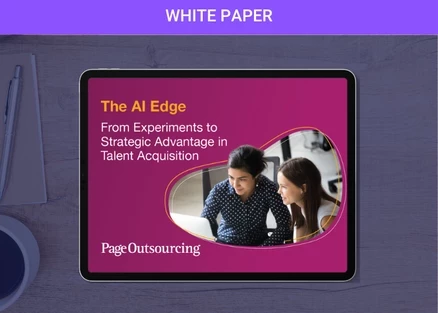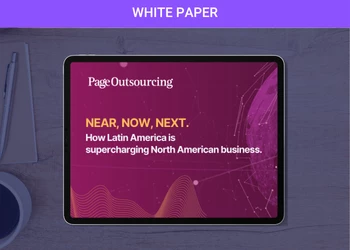
Are you managing for the future of work or work in the 20th century?
I don’t think it’s radical to say that the world has changed, that the world of work has changed, over the last 20 years... or even the last two years. But the way we run our organizations and manage our people? It hasn’t changed at nearly the same rate.
Most management still operates from a traditional model, and the most unfortunate part is that a lot of leadership isn’t aware that they are doing it or doesn’t recognize it’s an issue. If the former applies to you, don’t worry, there’s still time to learn and create change. If the latter applies, you should know that over half of the U.S. workers in their 20s and 30s believe that ‘my employer should be responsible for preparing me for the future of work.’ So your time is quickly running out.
The Experience Gap
A valuable business book I’ve read in recent years was Jill Popelka’s “Experience, Inc.” Released in 2022, this book digs into the employee experience in a post-pandemic world. We also talked about the book on Strategic Momentum, and one of the most startling things she shared from her research was a stark Experience Gap:
“90% of executives believe that they're delivering a great employee experience. 30% of employees believe that they're getting a great experience.”
And our data from What Workers Want: The State of Work and Career Success 2022 corroborates this idea that, overall, organizational structures do not currently align with peoples’ priorities or goals. We asked workers about 27 workplace characteristics in the survey and there isn't a single positive company characteristic that even half of those surveyed believe to be present in their organizations. And the attributes that make the biggest difference in employee experience and career satisfaction — like formal mentorship and career sponsorship programs — are especially lacking.

Popelka defines the employee experience as the beliefs, feelings, attitudes, and behaviors that result from your job experience. It’s the confluence of an individual’s sense of purpose, agency, belonging, and recognition. And companies struggle in creating positive employee experiences, largely, because their sole focus is on the metrics.
“All of us are dealing with the fact that we're all chasing these numbers instead of remembering that we are all human beings,” Popelka says. “And we have to create a great human experience because if we're not purpose-led, if we're not thinking about taking care of each other and empathy, then we won't [even have] the people that we have today in the workforce. We'll continue to lose.”
Working Together to Close the Gap
One of the first steps to closing the experience gap is closing the expectations gap. Employers’ expectations have grown increasingly out of step with what people really want; what’s needed to best onboard and integrate new employees, the level of investment in training and development, what tools and processes they need to do their jobs well, and how long they can expect workers to stay. We can’t create the experience that helps people or organizations grow if we aren’t on the same page about what people want and need to thrive.
But we also need to reconsider our management approaches and success measures. Because most managers are still using the same old tools to solve new problems.
KPIs won’t help you learn about an individual’s needs, motivations, attitudes, or how they like to learn. Metrics won’t help you care. And your people have enough options that they can and probably will choose to leave if they sense you don’t care.
So, if you want to create a great employee experience that helps your people build careers filled with purpose, agency, belonging, and recognition, there needs to be a cultural shift at the leadership level — a shift from being metrics led to purpose led. I call this Human-Centered Leadership or Human-Centered Management, and it’s the backbone of Human-Centered Organizations.
What does human-centered management look like? Managers that understand each individual’s goals and priorities so that they can align organizational goals with personal purpose, proactively develop peoples’ skills so that they are constantly growing, and/or create team structures that accommodate hybrid teams.
The role of managers in human-centered organizations should be delivering support and resources that address the whole person, not just what they do for you at work. Get to know them personally, determine how to motivate them professionally, and leverage the skills and interests they have outside of work within your organization; help them set goals and create a roadmap to achieve them; create a path to mentorship and career sponsorship.
That’s how you can start managing for the future of work, not work in the 20th century.


























